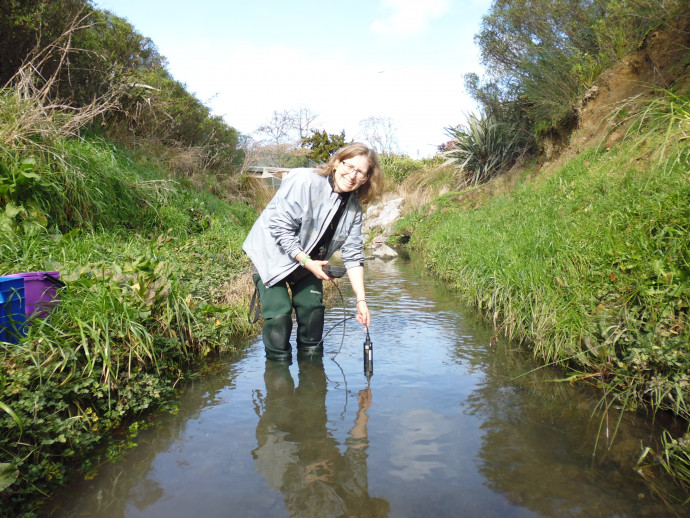Wakefield School - Isobel Ford

2017 | Our land, our coast, our water, our air
School: Wakefield School
Host: Tasman District Council
Region: Nelson / Tasman
Wakefield School has given much attention to developing a co-constructed model of teaching and learning that prioritises student agency through engagement with real-life contexts. They are interested in exploring how an understanding of the nature of science and science capabilities can support their learners to become citizens-in-action. The Science Teaching Leadership Programme gives Wakefield School an opportunity to develop science leadership and strengthen science in their school-wide curriculum. They are also keen to integrate science development within the emerging strategies of the Waimea Community of Learning/Kāhui Ako.
Isobel is an experienced primary teacher leading Literacy and Enviro Education at Wakefield School in the top of the South Island.
Isobel’s Science Teaching Leadership Programme placement was with the Resource Scientists in the Environmental Information Department at Tasman District Council (TDC) where she had the opportunity to experience first hand how science is used for monitoring and research to support environmental management. Isobel worked alongside scientists investigating soil, water, air, rivers, wetlands and the coast; areas of science that support the council’s work around land use, contamination, compliance, biodiversity and biosecurity.
She has developed her knowledge of environmental science across a range of areas including river water quality, groundwater, estuary sediment, soil, air quality, wetlands ecology, pest control, and environmental health. Her science learning has been- for the most part, about the monitoring of environmental resources to support Council decisions regarding resource management and compliance. She has also learnt how data is analysed for trends and changes, and used for reporting both to the public and to government bodies.
Isobel has built an understanding of how in order to work effectively within a unitary authority such as TDC, the resource scientists need be able to work in a cross-disciplinary way, particularly with the engineering and planning departments. The design of roads, housing developments, storm water drainage and flood controls can have a significant impact on our natural resources and resource scientists need to highlight how a ‘pure’ engineering solution to an issue could cause further environmental impact.
Isobel’s science learning has tended to be broad rather than focused on in-depth research in one particular area. As a teacher in a Year 0 to 6 primary setting, this has allowed her to build knowledge across a range of environmental science areas and to develop an understanding of how these are connected. The placement has provided her with the opportunity to make connections with Scientists, Councillors and environmental organisations that are open to working in partnership with local schools. It has also highlighted the importance of science literacy and engagement in the community to support democratic decision-making around local environmental issues.
This has been a remarkable opportunity for professional learning and development. Isobel is looking forward to returning to Wakefield School next year to use her new knowledge to support the development of the science curriculum there. She would like to acknowledge Tasman District Council, Wakefield School and the Royal Society Te Apārangi for their support and investment in her.
